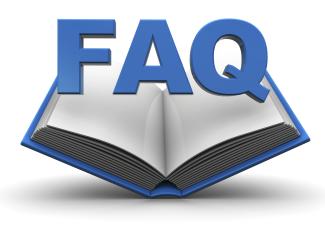Frequently Asked Questions

Audit Process
The audit process consists of seven phases: (1) Engagement Letter, (2) Entrance Conference, (3) Planning, (4) Fieldwork, (5) Exit Meeting, (6) Final Report, and (7) Follow-Up. Please see the Audit Process page for more information.
The time an audit last varies tremendously with a number of factors such as size, complexity, and risk of the agency. Based on multiple factors, budget hours are established during the construction of the audit plan and may be revised accordingly by management.
The OIAPI will make recommendations for improvements or corrective action for management to take based on findings during its audit.
The Office of Internal Audit and Program Integrity will need the assistance of staff to provide information and documents; however, we will make our best effort to limit effecting your agency’s operations.
Be honest and open and participate in the planning process and discussions. It is important that the agency voices its opinions and areas of concern or weakness. Also, give your take on the anticipated effectiveness and feasibility of the OIAPI’s proposed suggestions for improvement.
The scope period is determined with the objective of providing results that are relevant and timely. Typically the scope is the last fiscal year, sometimes through current date of audit. However, there are times when audits look at transactions over several fiscal and/or calendar years.
Under Rhode Island General Law § 35-7.1-13 it states that “Within one year following the date on which the audit report was issued, the office of internal audit may perform a follow-up audit for the purpose of determining whether the department, agency or private entity has implemented, in an efficient and effective manner, its plan of action for the recommendations proposed in the audit report.” Further, the OIAPI reports on whether corrective action was taken to its Advisory Group.
Report Process
The Office of Internal Audit and Program Integrity reports functionally to the Internal Audit Advisory Group and administratively to the Director of the Office of Management and Budget.
Copies are sent to the Director and Deputy Director of the Department of Administration, the Director of the Office of Management and Budget, the Chairperson(s) for the Senate Committee on Finance and House Finance Committee, the Auditor General, and the head of the audited agency.
General Questions
Rhode Island General Law § 35-7.1-1 authorizes the Office of Internal Audit and Program Integrity to perform audits of state departments, state agencies, or private entities that are recipients of state funding or state grants. The audits are determined in accordance with a risk-based evaluation, unless there is an issue of misappropriation. The Office of Internal Audit and Program Integrity's goal is to provide the Internal Audit Advisory Group and the general public an independent and objective report of program governance, risk management, and control processes and to recommend corrective actions to improve program cost effectiveness and efficiency as necessary.
The agencies selected for audit are primarily based on a risk assessment process. Departments with high risk are audited more frequently than those with medium or low risk.
The OIAPI performs a variety of audits. Please refer to the Types of Audit page for a description and listing of audit types.
Agency management requests audits for many reasons. Two main reasons are to receive an independent opinion as to whether a program is complying with all applicable rules and regulations; and to determine if there are program efficiencies that may be gained by changing how the program is managed or staffed.
The objectives of an internal audit are to:
- Evaluate the effectiveness and efficiency of internal controls and resources employed
- Review the reliability and integrity of financial and operational information
- Review fiscal and administrative operations
- Assess the use of established systems to ensure compliance with corresponding policies, procedures, plans, laws and regulations.
For further information on internal controls, please see OIAPI’s Internal Control Guide.
Reporting Fraud, Waste, & Abuse
No. The Office of Internal Audit and Program Integrity tries to reduce the risk of fraud by identifying control weaknesses. However, the OIAPI will receive and look into allegations of fraud which can be made through the Fraud Hotline page or by calling (401) 574-8175.
Upon learning about fraud, waste, or abuse, employees are encouraged to report the matter to management or to the Office of Internal Audit and Program Integrity.